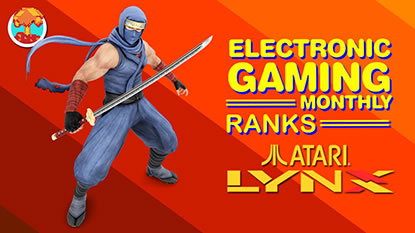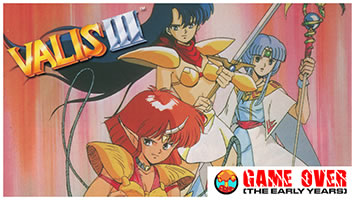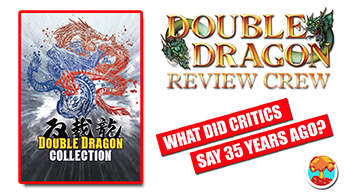- CLASSIC MAGAZINES
- REVIEW CREW
A show recapping what critics thought back
when classic games first came out! - NEXT GENERATION'S BEST & WORST
From the worst 1-star reviews to the best
5-stars can offer, this is Next Generation! - NINTENDO POWER (ARCHIVE)
Experience a variety of shows looking at the
often baffling history of Nintendo Power! - MAGAZINE RETROSPECTIVE
We're looking at the absolutely true history of
some of the most iconic game magazines ever! - SUPER PLAY'S TOP 600
The longest and most ambitious Super NES
countdown on the internet! - THEY SAID WHAT?
Debunking predictions and gossip found
in classic video game magazines! - NEXT GENERATION UNCOVERED
Cyril is back in this spin-off series, featuring the
cover critic review the art of Next Generation! - HARDCORE GAMER MAGAZING (PDF ISSUES)
Download all 36 issues of Hardcore Gamer
Magazine and relive the fun in PDF form!
- REVIEW CREW
- ELECTRONIC GAMING MONTHLY
- ELECTRONIC GAMING MONTHLY RANKS
From Mario to Sonic to Street Fighter, EGM
ranks classic game franchises and consoles! - ELECTRONIC GAMING MONTHLY BEST & WORST
Counting down EGM’s best and worst reviews
going year by year, from 1989 – 2009! - ELECTRONIC GAMING BEST & WORST AWARDS
11-part video series chronicling the ups and
downs of EGM’s Best & Worst Awards!
- ELECTRONIC GAMING MONTHLY RANKS
- GAME HISTORY
- GAME OVER: STORY BREAKDOWNS
Long-running series breaking down game
stories and analyzing their endings! - A BRIEF HISTORY OF GAMING w/ [NAME HERE]
Real history presented in a fun and pithy
format from a variety of game historians! - THE BLACK SHEEP
A series looking back at the black sheep
entries in popular game franchises! - INSTANT EXPERT
Everything you could possibly want to know
about a wide variety of gaming topics! - FREEZE FRAME
When something familiar happens in the games
industry, we're there to take a picture! - I'VE GOT YOUR NUMBER
Learn real video game history through a series
of number-themed episodes, starting at zero! - GREAT MOMENTS IN BAD ACTING
A joyous celebration of some of gaming's
absolute worst voice acting!
- GAME OVER: STORY BREAKDOWNS
- POPULAR SHOWS
- DG NEWS w/ LORNE RISELEY
Newsman Lorne Riseley hosts a regular
series looking at the hottest gaming news! - REVIEW REWIND
Cyril replays a game he reviewed 10+ years
ago to see if he got it right or wrong! - ON-RUNNING FEUDS
Defunct Games' longest-running show, with
editorials, observations and other fun oddities! - DEFUNCT GAMES QUIZ (ARCHIVE)
From online quizzes to game shows, we're
putting your video game knowledge to the test!- QUIZ: ONLINE PASS
Take a weekly quiz to see how well you know
the news and current gaming events! - QUIZ: KNOW THE GAME
One-on-one quiz show where contestants
find out if they actually know classic games! - QUIZ: THE LEADERBOARD
Can you guess the game based on the classic
review? Find out with The Leaderboard!
- QUIZ: ONLINE PASS
- DEFUNCT GAMES VS.
Cyril and the Defunct Games staff isn't afraid
to choose their favorite games and more! - CYRIL READS WORLDS OF POWER
Defunct Games recreates classic game
novelizations through the audio book format!
- DG NEWS w/ LORNE RISELEY
- COMEDY
- GAME EXPECTANCY
How long will your favorite hero live? We crunch
the numbers in this series about dying! - VIDEO GAME ADVICE
Famous game characters answer real personal
advice questions with a humorous slant! - FAKE GAMES: GUERILLA SCRAPBOOK
A long-running series about fake games and
the people who love them (covers included)! - WORST GAME EVER
A contest that attempts to create the worst
video game ever made, complete with covers! - LEVEL 1 STORIES
Literature based on the first stages of some
of your favorite classic video games! - THE COVER CRITIC
One of Defunct Games' earliest shows, Cover
Critic digs up some of the worst box art ever! - COMMERCIAL BREAK
Take a trip through some of the best and
worst video game advertisements of all time! - COMIC BOOK MODS
You've never seen comics like this before.
A curious mix of rewritten video game comics!
- GAME EXPECTANCY
- SERIES ARCHIVE
- NINTENDO SWITCH ONLINE ARCHIVE
A regularly-updated list of every Nintendo
Switch Online release, plus links to review! - PLAYSTATION PLUS CLASSIC ARCHIVE
A comprehensive list of every PlayStation
Plus classic release, including links! - RETRO-BIT PUBLISHING ARCHIVE
A regularly-updated list of every Retro-Bit
game released! - REVIEW MARATHONS w/ ADAM WALLACE
Join critic Adam Wallace as he takes us on a
classic review marathon with different themes!- DEFUNCT GAMES GOLF CLUB
Adam Wallace takes to the links to slice his way
through 72 classic golf game reviews! - 007 IN PIXELS
Adam Wallace takes on the world's greatest spy
as he reviews 15 weeks of James Bond games! - A SALUTE TO VAMPIRES
Adam Wallace is sinking his teeth into a series
covering Castlevania, BloodRayne and more! - CAPCOM'S CURSE
Adam Wallace is celebrating 13 days of Halloween
with a line-up of Capcom's scariest games! - THE FALL OF SUPERMAN
Adam Wallace is a man of steel for playing
some of the absolute worst Superman games! - THE 31 GAMES OF HALLOWEEN
Adam Wallace spends every day of October afraid
as he reviews some of the scariest games ever! - 12 WEEKS OF STAR TREK
Adam Wallace boldly goes where no critic has
gone before in this Star Trek marathon!
- DEFUNCT GAMES GOLF CLUB
- DAYS OF CHRISTMAS (ARCHIVE)
Annual holiday series with themed-episodes
that date all the way back to 2001!- 2015: 30 Ridiculous Retro Rumors
- 2014: 29 Magazines of Christmas
- 2013: 29 Questionable Power-Ups of Christmas
- 2012: 34 Theme Songs of Christmas
- 2011: 32 Game Endings of Christmas
- 2010: 31 Bonus Levels of Christmas
- 2009: 30 Genres of Christmas
- 2008: 29 Controls of Christmas
- 2007: 34 Cliches of Christmas
- 2006: 33 Consoles of Christmas
- 2005: 32 Articles of Christmas
- 2004: 31 Websites of Christmas
- 2003: 29 Issues of Christmas
- 2002: 28 Years of Christmas
- 2001: 33 Days of Christmas
- NINTENDO SWITCH ONLINE ARCHIVE
- REVIEW ARCHIVE
- FULL ARCHIVE
The Positively True Story of "This Week"

Honey, those NES controllers aren't going to help you where we're going!
Five years, 200 episodes, 17 systems, 3 ratings and over 400 reviews; there's a reason why This Week in Defunct Games is so popular. Every seven days we look at that week's retro releases, from the Virtual Console to PSone Classics to the Neo Geo Station. Defunct Games helps take some of the guess work out of buying old school games on modern consoles and handhelds.
Last week we passed a milestone and hit our 200th episode. To celebrate, we spent a whole day crunching the numbers and determining which classic game system was best (see: The Numbers Behind This Week's 200th Ep!). But even after digging deep into our ratings, we discovered that a lot of people still had questions. Whatever happened to the co-host? What about the missing games? And will we ever bring back the weekly limericks and haikus?
To clear up some of the confusion, we thought it would be fun to take a look back at the show's feeble starts and how it has evolved over the years. Below is everything you ever wanted to know about This Week in Defunct Games and more. Get ready to become an Instant Expert on one of Defunct Games' most enduring shows.
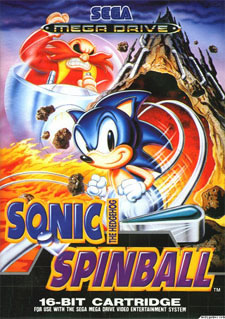
Virtual Console, Teenage Mutant Ninja Turtles on Xbox Live Arcade, and the PSN port of wipEout 3. The idea was to keep it simple, ask three very basic questions ("What Is It?", "Does It Still Hold Up?" and "Is It Worth the Money?") and get out. Nobody needs a fifteen hundred word argument for Sonic Spinball, they just want to know if it's worth eight dollars.
You would think that reviewing the weekly Virtual Console games would be a no-brainer, but it took us almost exactly four months to finally run with the idea. In our defense, this was still an emerging market and nobody knew how long it would be around. Plus, we had already reviewed many of the games uploaded to the Virtual Console, potentially making the show redundant. It didn't take long for us to realize that redundant or not, we needed to start addressing these weekly games on a regular basis. From there it didn't take long for This Week in Defunct Games to be born.
how long it would be around. Plus, we had already reviewed many of the games uploaded to the Virtual Console, potentially making the show redundant. It didn't take long for us to realize that redundant or not, we needed to start addressing these weekly games on a regular basis. From there it didn't take long for This Week in Defunct Games to be born.
We initially targeted Thursdays, giving us a couple days to digest that Monday's Virtual Console games. Unfortunately, it didn't give us much time to play the Xbox Live Arcade titles (released on Wednesdays) or PSN releases (released on Thursdays). After toying with a few different review types, we ultimately dropped Microsoft and Sony's platforms entirely. We vowed to work solely on the Virtual Console. Little did we know that the PSone Classics would be a popular mainstay a couple hundred episodes later.
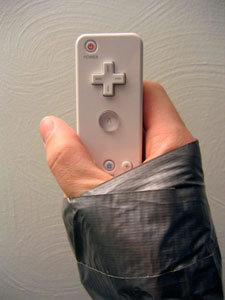 podcast. Fans could read our written reviews and then immediately download a short conversation about that week's titles. It seemed like the perfect way to add another audio podcast to the site and have deep conversations about games most people have forgotten about. It was the can't-miss idea that crashed and burned. What happened?
podcast. Fans could read our written reviews and then immediately download a short conversation about that week's titles. It seemed like the perfect way to add another audio podcast to the site and have deep conversations about games most people have forgotten about. It was the can't-miss idea that crashed and burned. What happened?
Between March 15 and July 12, 2007, we recorded ten podcasts starring Cyril Lachel and Wes Grogan. We chatted for a few minutes about what we were playing and the two or three Virtual Console games released that week. We learned that Wes loved Zelda II and that Cyril had changed his mind about Splatterhouse. They were lively conversations,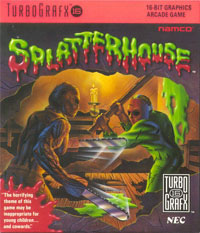 even if the recording quality is embarrassing in retrospect.
even if the recording quality is embarrassing in retrospect.
As easy as it sounds, creating a podcast takes a lot of work. Not only do you have to plan the time to record it, but you also have to spend a lot of time editing it. Writing the weekly article was already time consuming, so the added hassle of synching up schedules and recording became a nightmare. Eventually the two hosts decided to call it quits, simply leaving the written article we know today.
Don't feel too bad for Wes Grogan, as he would eventually go on to write a number of interesting articles for Defunct Games. He will always be remembered for creating another popular show, A Brief History of Gaming. After writing the first few episodes, Wes moved on to bigger and better things. But that's a history lesson for another day.
 hardware, this Ted Turner-funded company opted to deliver a wide variety of games to your computer using the internet. Think of it as the precursor to OnLive or Sega Channel: The Next Level, the choice is yours.
hardware, this Ted Turner-funded company opted to deliver a wide variety of games to your computer using the internet. Think of it as the precursor to OnLive or Sega Channel: The Next Level, the choice is yours.
After being wooed at the Penny Arcade Expo in Bellevue, Washington, we decided to add a short blurb about GameTap at the end of every "This Week" episode. This coincided perfectly with the company's push for classic arcade games, and we were only too eager to help them promote a growing list of free downloadable games. GameTap couldn't be happy with our coverage, sending us contest codes, classic game swag and more. Unfortunately, the bubble was about to burst.
Hot on the Heels of the Sam & Max reboot, GameTap decided to hire American McGee for an episodic series. The result was American McGee's Grimm, an ugly game that ran between 2008 and 2009. Suddenly we had gone from reviewing Final Fight to talking about the awfulness of Grimm. This Week in Defunct Games had lost its way. Eventually the company would make another play for the classic game market, but not before the damage was done. The GameTap situation sent our writing staff into a deep, dark funk. It would be awhile before any of us saw the light again.
 step was to drastically change the reviews. This meant that we ditched our detailed paragraph and instead focused on extremely brief haikus. As it turns out; writing poetry is a lot of fun, especially when it has something to do with video games. Gone were the days of spending hours playing through games, because now all we had to do was think 5 - 7 - 5.
step was to drastically change the reviews. This meant that we ditched our detailed paragraph and instead focused on extremely brief haikus. As it turns out; writing poetry is a lot of fun, especially when it has something to do with video games. Gone were the days of spending hours playing through games, because now all we had to do was think 5 - 7 - 5.
From there we decided to broaden our horizons, which meant reintroducing the Xbox Live Arcade and PSN stores. Each section had its own gimmick -- Point/Counter Point with Microsoft, WiiWare limericks, DSiWare poetry, etc. This allowed us to be creative and review a number of games we hadn't played. This was especially helpful in the early days of the Wii and DSiWare, platforms known for quantity over quality.
WiiWare limericks, DSiWare poetry, etc. This allowed us to be creative and review a number of games we hadn't played. This was especially helpful in the early days of the Wii and DSiWare, platforms known for quantity over quality.
Like any gimmick, it didn't take long for us to grow tired of the haikus and limericks. We weren't really reviewing games anymore; we were making a mockery out of these downloadable services. And to make matters worse, none of these platforms were offering retro games. We needed to change directions and take the show more seriously. We wanted people to look forward to "This Week" for the reviews, not the poetry. Even though we had outgrown the haikus, they ultimately helped us beat the blues and become the powerful feature you know today.
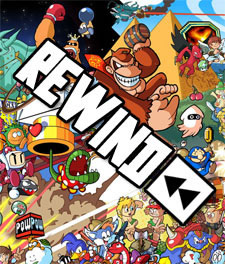 some of the biggest hits of all time, including Sonic the Hedgehog, Super Mario World, SimCity, The Legend of Zelda: The Ocarina of Time, Gradius, Kid Icarus, Bonk's Adventure and Gunstar Heroes.
some of the biggest hits of all time, including Sonic the Hedgehog, Super Mario World, SimCity, The Legend of Zelda: The Ocarina of Time, Gradius, Kid Icarus, Bonk's Adventure and Gunstar Heroes.
A few of these games have made their way into recent "This Week" episodes, thanks to Nintendo relreasing NES hits like Super Mario Bros., The Legend of Zelda and Donkey Kong Jr. Other games have been extensively in long form reviews and articles about compilation discs. Still, it keeps us awake at night knowing that we have yet to pass judgment on a huge chunk of Virtual Console releases. That is unacceptable!
This is why we're proud to introduce our newest show: This Week in Defunct Games Rewind. Instead of taking the week off when Nintendo ignores the Virtual Console, we're going to leap into action and review six or seven older releases. Slowly we will start to chip away at the missing games and, with any luck, become your first stop for any and all retro reviews.
Last week we passed a milestone and hit our 200th episode. To celebrate, we spent a whole day crunching the numbers and determining which classic game system was best (see: The Numbers Behind This Week's 200th Ep!). But even after digging deep into our ratings, we discovered that a lot of people still had questions. Whatever happened to the co-host? What about the missing games? And will we ever bring back the weekly limericks and haikus?
To clear up some of the confusion, we thought it would be fun to take a look back at the show's feeble starts and how it has evolved over the years. Below is everything you ever wanted to know about This Week in Defunct Games and more. Get ready to become an Instant Expert on one of Defunct Games' most enduring shows.
The Birth: Better Late Than Never
Officially introduced on March 15, 2007, This Week in Defunct Games was sold as a weekly review show looking at retro releases. Our initial targets included Tecmo Bowl, Sonic Spinball and Double Dungeons on the

You would think that reviewing the weekly Virtual Console games would be a no-brainer, but it took us almost exactly four months to finally run with the idea. In our defense, this was still an emerging market and nobody knew

We initially targeted Thursdays, giving us a couple days to digest that Monday's Virtual Console games. Unfortunately, it didn't give us much time to play the Xbox Live Arcade titles (released on Wednesdays) or PSN releases (released on Thursdays). After toying with a few different review types, we ultimately dropped Microsoft and Sony's platforms entirely. We vowed to work solely on the Virtual Console. Little did we know that the PSone Classics would be a popular mainstay a couple hundred episodes later.
This Week in Defunct Games: The Podcast
Inspired by the many worthwhile retro-themed podcasts floating around the internet, Defunct Games decided to turn This Week in Defunct Games into a

Between March 15 and July 12, 2007, we recorded ten podcasts starring Cyril Lachel and Wes Grogan. We chatted for a few minutes about what we were playing and the two or three Virtual Console games released that week. We learned that Wes loved Zelda II and that Cyril had changed his mind about Splatterhouse. They were lively conversations,

As easy as it sounds, creating a podcast takes a lot of work. Not only do you have to plan the time to record it, but you also have to spend a lot of time editing it. Writing the weekly article was already time consuming, so the added hassle of synching up schedules and recording became a nightmare. Eventually the two hosts decided to call it quits, simply leaving the written article we know today.
Don't feel too bad for Wes Grogan, as he would eventually go on to write a number of interesting articles for Defunct Games. He will always be remembered for creating another popular show, A Brief History of Gaming. After writing the first few episodes, Wes moved on to bigger and better things. But that's a history lesson for another day.
The GameTap Situation
People forget about it now, but there once was a time when GameTap looked like it might become a viable game platform. Instead of weighing people down with needless

After being wooed at the Penny Arcade Expo in Bellevue, Washington, we decided to add a short blurb about GameTap at the end of every "This Week" episode. This coincided perfectly with the company's push for classic arcade games, and we were only too eager to help them promote a growing list of free downloadable games. GameTap couldn't be happy with our coverage, sending us contest codes, classic game swag and more. Unfortunately, the bubble was about to burst.
Hot on the Heels of the Sam & Max reboot, GameTap decided to hire American McGee for an episodic series. The result was American McGee's Grimm, an ugly game that ran between 2008 and 2009. Suddenly we had gone from reviewing Final Fight to talking about the awfulness of Grimm. This Week in Defunct Games had lost its way. Eventually the company would make another play for the classic game market, but not before the damage was done. The GameTap situation sent our writing staff into a deep, dark funk. It would be awhile before any of us saw the light again.
The Dark Days: Haikus, Limericks and Sadness
Instead of dropping GameTap immediately, we chose a gradual phasing out strategy. Our first

From there we decided to broaden our horizons, which meant reintroducing the Xbox Live Arcade and PSN stores. Each section had its own gimmick -- Point/Counter Point with Microsoft,

Like any gimmick, it didn't take long for us to grow tired of the haikus and limericks. We weren't really reviewing games anymore; we were making a mockery out of these downloadable services. And to make matters worse, none of these platforms were offering retro games. We needed to change directions and take the show more seriously. We wanted people to look forward to "This Week" for the reviews, not the poetry. Even though we had outgrown the haikus, they ultimately helped us beat the blues and become the powerful feature you know today.
The Missing Games and a Big Announcement!
As you already know, This Week in Defunct Games was born on March 15, 2007. That means that there are four months' worth of games unaccounted for. For those keeping count, that's a total of 62 Virtual Console games missing from our database. These include

A few of these games have made their way into recent "This Week" episodes, thanks to Nintendo relreasing NES hits like Super Mario Bros., The Legend of Zelda and Donkey Kong Jr. Other games have been extensively in long form reviews and articles about compilation discs. Still, it keeps us awake at night knowing that we have yet to pass judgment on a huge chunk of Virtual Console releases. That is unacceptable!
This is why we're proud to introduce our newest show: This Week in Defunct Games Rewind. Instead of taking the week off when Nintendo ignores the Virtual Console, we're going to leap into action and review six or seven older releases. Slowly we will start to chip away at the missing games and, with any luck, become your first stop for any and all retro reviews.


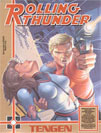
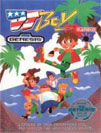
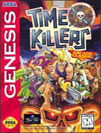

HOME |
CONTACT |
NOW HIRING |
WHAT IS DEFUNCT GAMES? |
NINTENDO SWITCH ONLINE |
RETRO-BIT PUBLISHING
Retro-Bit |
Switch Planet |
The Halcyon Show |
Same Name, Different Game |
Dragnix |
Press the Buttons
Game Zone Online | Hardcore Gamer | The Dreamcast Junkyard | Video Game Blogger
Dr Strife | Games For Lunch | Mondo Cool Cast | Boxed Pixels | Sega CD Universe | Gaming Trend
Game Zone Online | Hardcore Gamer | The Dreamcast Junkyard | Video Game Blogger
Dr Strife | Games For Lunch | Mondo Cool Cast | Boxed Pixels | Sega CD Universe | Gaming Trend
Copyright © 2001-2025 Defunct Games
All rights reserved. All trademarks are properties of their respective owners.
All rights reserved. All trademarks are properties of their respective owners.













